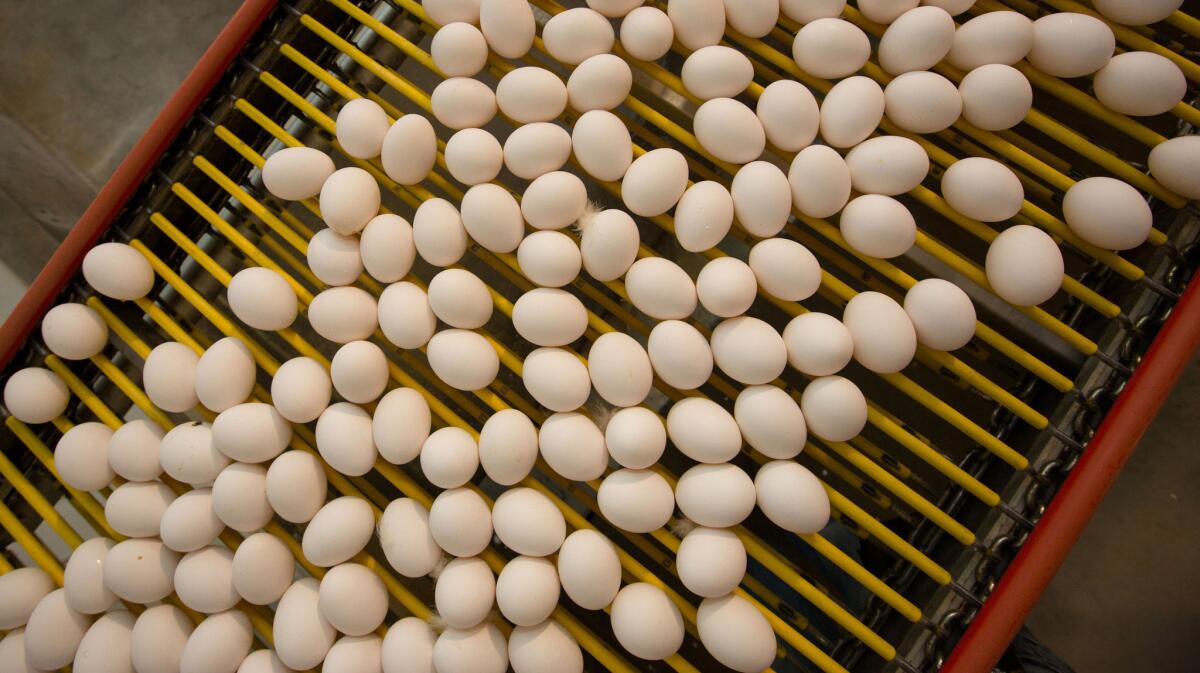On eggs, hens and cages, Missouri is wrong and California is right

- Share via
Proposition 2 is not going away, so instead of fighting it, Missouri should focus on building bigger henhouses.
Starting next year, egg-laying hens in California will no longer be held in cramped cages that barely allow them to move. Proposition 2, the ballot measure that passed overwhelmingly in 2008 and goes into effect in 2015, requires all egg farms in the state to provide hens with space to stand up, lie down, turn around freely and fully extend their limbs. A complementary bill in the Legislature, passed in 2010, requires all out-of-state farmers to comply with these regulations if they want to sell eggs in California.
Now, the Missouri state attorney general has asked a U.S. District Court in California to declare the law invalid and to stop it from being enforced because, he says, it violates the commerce clause of the U.S. Constitution. Last year, according to the suit, Californians bought a third of all the eggs produced in Missouri, making that state the second-largest supplier of eggs to California consumers (behind California itself). Either Missouri farmers will be forced to comply with the California law at great added expense, or they will lose a huge market for their eggs. That is unacceptable, the suit argues, because “California is attempting to regulate agricultural practices beyond its own borders.”
We’re not persuaded. AB 1437 is a good law that will essentially level the playing field for all egg farmers selling in California. Thanks to its provisions, California farmers won’t have to compete against out-of-state producers who can underprice them by mistreating hens. And the fact of the matter is that plenty of states pass laws for the well-being of consumers as well as farm animals, laws that often have an impact on out-of-state producers who sell to those states.
A federal court in California has already rejected a challenge to the state law banning the sale of foie gras made by force-feeding ducks. The court concluded that the law did not affect interstate commerce because it put the same rule on all producers of foie gras, in or out of California.
It’s time for egg producers to stop fighting the new requirements. Yes, the ideal solution to the chicken and egg problem would be one federal standard on hen housing. Legislation on that has stalled in Congress.
But Proposition 2 is not going away. Courts have upheld its legality in three lawsuits. Four other states have bans on cramped quarters for hens. (Five regulate housing for calves and nine do so for pigs.) Several large food service companies have said they will use only cage-free eggs. Missouri should drop its lawsuit and concentrate on building roomier henhouses.
More to Read
A cure for the common opinion
Get thought-provoking perspectives with our weekly newsletter.
You may occasionally receive promotional content from the Los Angeles Times.










